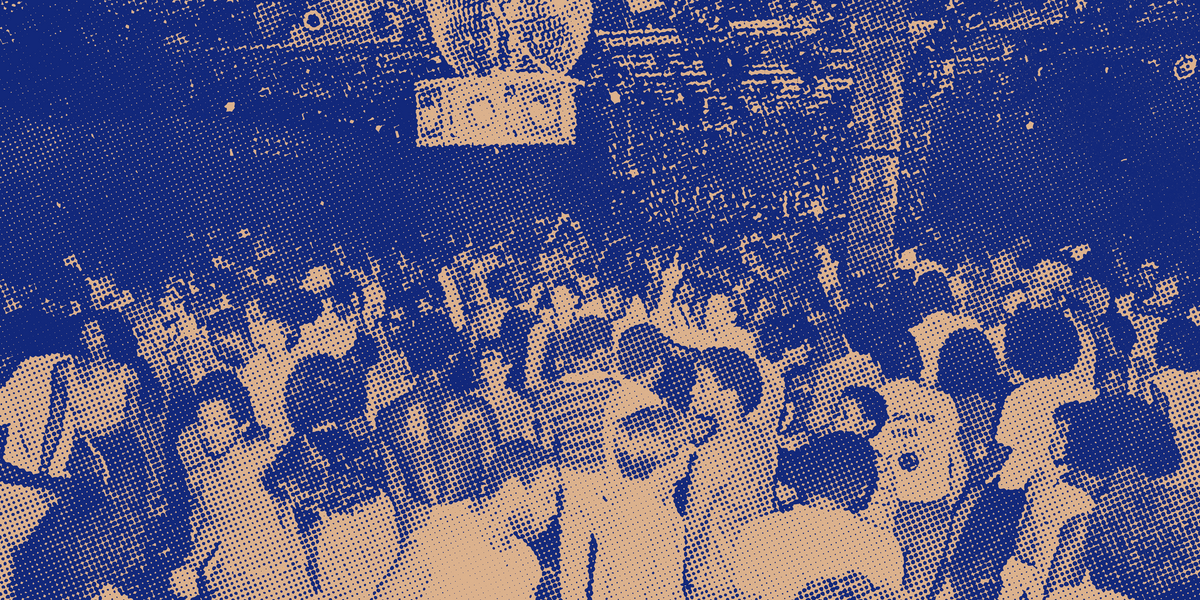The people and the story of Paradise Garage
Another small club with a big global impact. While this is not the full story of house music, it's one of them, and one worth telling.

The history of Paradise Garage is deeply intertwined with the history of New York City's vibrant music and club scene. The club was founded by Michael Brody and was located in a building that was originally an automobile parking structure at 84 King Street in the Soho neighborhood. The club derived its name from the building's original purpose as a garage.
The club opened as 84 King Street Garage in 1977 after a year-long renovation. It officially became Paradise Garage on January 28, 1978. The club was designed with a custom sound system and a sprung dance floor, and it initially accommodated 750 patrons. However, an expansion in 1984 raised its legal capacity to 1400 people and added a rooftop lounge styled after the coastal scrubland and beachside villas of nearby Fire Island Pines, where Brody owned a summer home.
Paradise Garage was not just a club; it was a cultural hub that brought together diverse communities. Admission to the club was only available to members and their guests, with an interview process used to select members. The club fostered a distinctly no-frills, egalitarian atmosphere, promoting dancing over verbal interaction. The club also hosted a number of charity events, benefitting organizations like the Gay Men's Health Crisis (GMHC).
After 11 years of operation, the club's lease ended on October 1, 1987. The building later reverted to use as a truck depot by Verizon Communications. In April 2018, it was demolished and replaced by high-rise luxury condominiums.
Music and Culture
Paradise Garage was more than just a nightclub; it was a cultural hub that played a significant role in shaping the music and club scene in New York City. The club was known for its unique and eclectic styles of disco and dance music, curated by resident DJ Larry Levan. The music played at Paradise Garage gave rise to terms like "New York House," "Garage," "Garage Style," and "Garage Classic."
Larry Levan, the club's resident DJ, was a central figure in the club's success. His eclectic sets, which included a mix of disco, post-punk, pop, and dance music, were a major draw for clubgoers. Levan's influence extended beyond the club, with his remixes and productions helping to shape the sound of dance music in the 1980s.
The club was also known for its egalitarian atmosphere. Admission to the club was only available to members and their guests, with an interview process used to select members. This created a sense of community among clubgoers, with the club promoting dancing over verbal interaction.
Paradise Garage also hosted a number of charity events, benefitting organizations like the Gay Men's Health Crisis (GMHC). These events, along with the club's music and atmosphere, helped to foster a sense of community and inclusivity.
The club's influence extended beyond New York City, with clubs like London's Ministry of Sound citing Paradise Garage as a direct inspiration. The club's influence can also be seen in the music and club culture it helped shape, with terms like "Garage" and "New York House" still used today to describe certain styles of dance music.
The Garage Sound
Paradise Garage, under the guidance of Larry Levan, was known for its high fidelity sound system that revolutionized the nightlife experience. The club was among the first contemporary dance clubs to apply scientifically researched acoustic principles. The sound system was designed to provide high-quality sound to a 5000 square foot dance floor. The club's sound system was a product of precision, fine-tuning, and constant reinvention.
The DJ booth was equipped with German Thorens TD125 belt drive turntables, which were preferred for their high fidelity. Larry Levan would switch between different brands of tonearms and cartridges, using cheaper ones early in the night and switching to Grace F9s at peak hours. The mixers used were either an Urei 1620 or a Bozak CMA-10DL2, both known for their clean and round fat sound. The amplifiers used were beautiful McIntosh amplifiers for the mids and highs, and Crown PSA amps for the subwoofer cabinets.
The speaker system was designed by master carpenter and sound designer Richard Long and Al Fierstein. They built wooden speaker boxes by hand, drawing from the design of Klipsch cabinets. The sound system was designed first, and the room was built around it. This attention to detail and focus on sound quality played a significant role in creating the unique "Garage Sound."
The Club's Design and Aesthetics
Paradise Garage was a unique venue that was designed with the utmost attention to detail. The exterior of the club, located at 84 King Street, was an unassuming parking garage. However, once past the runway and through the doors, it transformed into a vibrant piece of dance music and LGBTQ+ history. The club was known for its custom-made Richard Long sound system and parties that lasted well into the next afternoon.
The club was designed to be a space where music and dance were paramount. The dance floor was spacious, and the club was equipped with a state-of-the-art sound system that was constantly fine-tuned to provide the best possible sound experience. The club's design was focused on creating an optimal environment for dancing and enjoying music.
The club was also known for its inclusive atmosphere. Despite being a members-only establishment, the average person could typically get in if they had the look or if they came along with a card-carrying member. This inclusive exclusivity created a space where queer dance culture could thrive and develop into the diverse array of musical expressions we know today.
## Influential Performances
Paradise Garage was known for its influential performances that helped define a new genre of music. The DJs who spun at the Garage and the artists who played there, including the likes of Chaka Khan, Evelyn King, Madonna, Whitney Houston, and Grace Jones, came to define a new genre of music. These performances were instrumental in shaping the sound of the Paradise Garage and the genre of music that it helped create.
Larry Levan, the club's resident DJ, was a key figure in shaping the sound of the Paradise Garage. His unique DJing style and his ability to connect with the crowd made him one of the greatest DJs of all time. His selections were instrumental in the development of dance music in New York, and his influence can still be felt today.
The performances at Paradise Garage were more than just music; they were a cultural phenomenon that helped shape the music and club scene in New York City. The club's influence can still be felt today, with many DJs and artists citing Paradise Garage as a major influence on their music.
Impact and Legacy
Paradise Garage and its resident DJ, Larry Levan, had a profound impact on the music scene in New York City and beyond. Levan, born Lawrence Philpot, was an influential figure in the rise of garage house, also referred to as New York house. His unique DJing style blended Philadelphia soul with jazz-infected eclectic rhythms, creating a sound that was both unique and captivating.
Levan's residency at Paradise Garage allowed him to develop his signature sound, characterized by deep, dark basses and a dub reinterpretation of records. His sets at the Garage would range from different artists and styles, always remaining at the forefront of the dance music scene. His later sets showed an inclination for upcoming sounds like Chicago house and hip-hop.
The Paradise Garage itself was a groundbreaking venue that shaped the concept of the modern nightclub. The club's format put the DJ at the center of attention, elevating his importance. The club developed a famous sound called the "Garage Sound," prominent during the early-to-mid 1980s, that later came to be known as house, garage, or simply house music.
The club's sound system, developed, designed, and installed by Richard Long Associates, was renowned for its amazing treble and powerful low-end. The sound treatment prevented reverberations and unwanted echo, creating an optimal sound environment. The legacy of Paradise Garage and Larry Levan continues to be felt today, with artists such as Danny Tenaglia, Francois K, Joey Negro, Junior Vasquez, and Loleatta Holloway, among others, immortalizing the Garage sound.
Closing the Paradise Garage
The closing of Paradise Garage was a significant event that marked the end of an era in New York City's nightlife. The last night of the club, which lasted for three days, was a weekend-long party where Grace Jones shared the DJ booth with Larry Levan. The energy that weekend was different, with attendees focusing on feeling the place so it would stay with them forever. The sound, the lights, Larry in his booth, different groups of friends, the dancers, the rooftop - everyone knew there would be other places where people would meet again, but the unique vibe of Paradise Garage was something that many found irreplaceable.
The closing party was a reflection of the club's impact and legacy. It was a moment of celebration, but also of sadness and nostalgia. People were crying and not wanting to leave, knowing that this was something that was not going to be repeated. The club's closing was not just the end of a venue, but the end of a cultural phenomenon that had shaped the music and club scene in New York City.
Even after the club's closing, its legacy continues to live on. The three decades after the club closed, it remains an icon of New York's nightlife heyday, living on as the annual Paradise Garage Reunion, held in Brooklyn. The club's influence can still be felt in the music and club culture it helped shape, and the memories of those final nights at Paradise Garage continue to inspire and influence those who were there.


